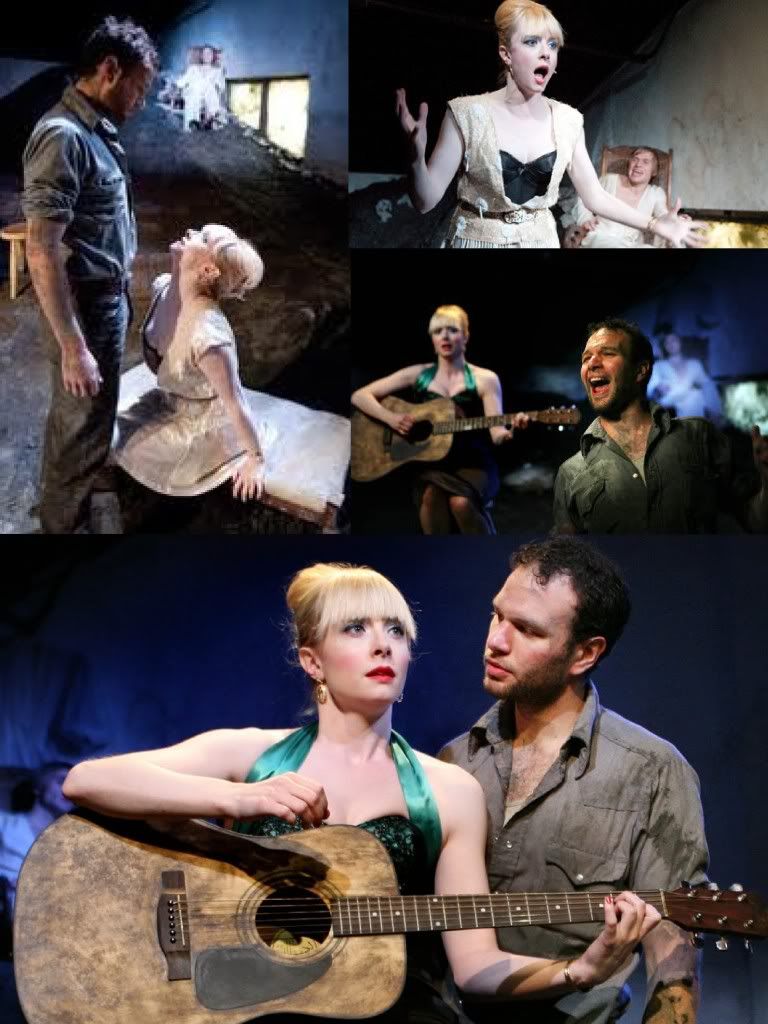I must admit, when I think of my trip to Kingdom of Earth, the first thing that springs to mind is the mingled excitement and panic of finding myself sat next to Tom Brooke (a panic not helped by friends offering several helpful tweets reminding me of the odd ways the press have chosen unfairly to describe the very handsome Mr. Brooke). That this is the first thought to spring to mind though should speak for the enormity of the occasion, rather than anything else – as my first trip to the Print Room was memorable for several other reasons – the lovely surroundings, the beautiful garden and it’s sprays of dripping roses, the whistle stop talk beforehand, the free lollipop and, most of all, a really wonderful production.
Right from the moment you walked into the theatre to find the stage had been engulfed in a mountain of mud, water dripping steadily from the ceiling and remnants of furniture emerging from the muck (and definitely stirring my dormant archaeological curiosity) – it was clearly going to be an impressive spectacle. Marvellously it managed to be spectacular, whilst also remaining true to the subtle nuances of Tennessee Williams’ play – that manages to be intimate and grand, real and ridiculous.
William’s remains one of those playwrights that fills me with excitement and joy at every turn – I find his characters compelling, his language beautiful and his ability to shock and appall still surprising. And in Kingdom of Earth he gives us another fascinating exploration of humanity and relationships and they way they are twisted and twist us. The familial relationship between Lot (Joseph Drake) and Chicken (David Sturzaker) proving a prime example.
All three performances were excellent, though I was particularly impressed by Fiona Glascott as Myrtle, the beating heart of this unusual love triangle. She managed to convincingly pull of all of the scripts commands with utter charm and an alluring mix of vulnerability, ridiculousness and balls. I couldn’t help but fall in love with the character (especially following a moment when she armoured herself in her stage persona). Characters like Myrtle are the reason I can’t quite understand the argument that all William’s women are supposed to be gay men (anymore than I can believe that all gay men hate women). His woman read to me too truthful, real, awesomely captured and adored.
Plus this story was packed with an exploration of fascinating sexual identities – particularly in the half-brothers relationship – with Lot an effeminate potentially gay man and the brutish but magnetic Chicken, given the name contributed at the time to rent boys (in a similar way to Shakespeare’s Ganymede) – it paints an interesting impression on the dynamics William’s was creating and the role of women within it.
Fascinating, powerful and exciting and definitely convincing me the Print Room deserves many more visits.

No comments:
Post a Comment